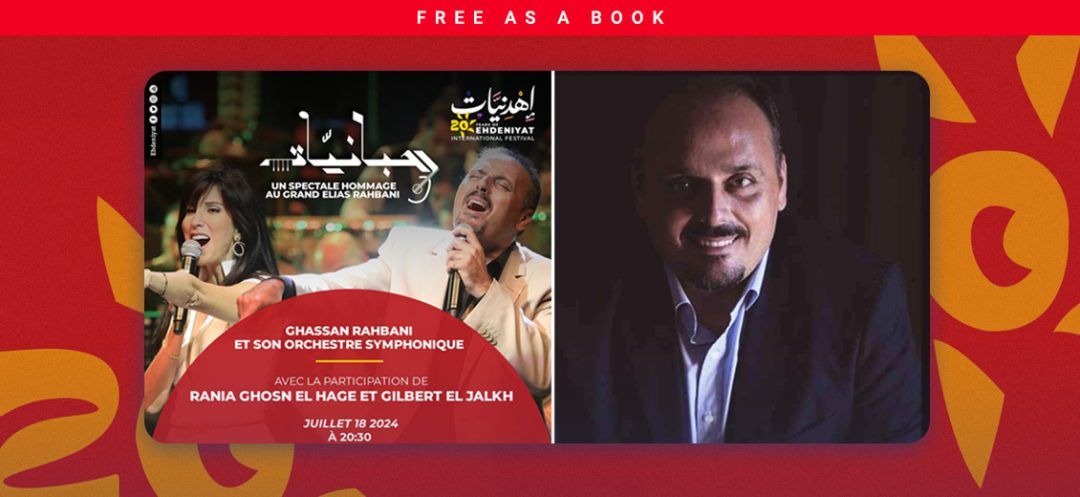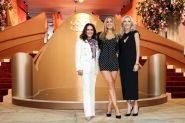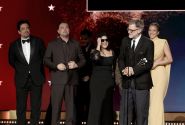
The International Festival Ehdeniyat, celebrating its 20th anniversary this year, presents Rahbaniyat, a tribute show to Elias Rahbani, during its opening night on July 18. Music, dance, theater, visual arts, and poetry will come together in a grand spectacle conceived by Ghassan Rahbani, who will be at the piano and will lead his symphony orchestra composed of more than 50 musicians. Singers Ranya Ghosn el-Hage and Gilbert Jalkh will perform a selection of Elias Rahbani’s songs, which have left a lasting mark on the Lebanese collective memory. This is Beirut met with Ghassan Rahbani.
Elias Rahbani composed more than 6,500 songs and musical pieces in various styles, ranging from classicism to alternative, underground music, yé-yé, rock, and 60s pop. He enriched the Lebanese and Arab musical heritage with 2,000 songs, and his successes in French, English, and Italian languages propelled their performers to fame, such as Ho capito che ti amo by Joe Diverio and Mory, Mory by Sammy Clark, to name a few. He composed the lyrics and melodies for the most famous songs of Fairouz, including: Ya Lour Hubbuki (“O Laure, Your Love”); El-Oudal Mensiyyé (“The Forgotten Piece”); Hanna el Sikran (“Hanna the Drunk”); and Kan Enna Tahoun (“We Had a Mill”). However, it was with a song he composed for Sabah that he first gained notoriety. Elias Rahbani also composed numerous songs for Wadih El Safi and golden-age singers like Melhem Barakat, Nasri Shamseddine, Georgette Sayegh, and Magida el-Roumi. He collaborated with several singers of the new generation, such as Pascale Sakr. The composer created the original scores for twenty-five films, including Egyptian films and cult TV series. Among the most famous are Habibati (“My Darling”) starring Egyptian cinema icon Faten Hamama, and the series Aazif Al-Layl (“The Night Musician”), featuring the Lebanese TV couple Hind Abillamah and Mahmoud Majzoub. He produced and composed several plays, including: Wadi Chamsin (“The Valley of Chamsine”); Safar Al-Ahlam (“The Journey of Dreams”); and Ella. In the field of poetry, he published a book titled Nafidhat Al-Omr (“The Window of Life”) in 1996. Among the 150 anthems he composed, he presented the Francophonie anthem in 2001, in tribute to the 52 countries participating in the Francophonie summit in Lebanon.
Rahbaniyat is an act of gratitude from the artist's son to his father and a tribute, desired by the Ehdeniyat Festival, to the leading figures of Lebanese music. The festival’s opening night kicks off with Elias Rahbani’s timeless repertoire, which attracts all generations. Ghassan Rahbani answered questions from This is Beirut.
What prompted you to select Ranya Ghosn el-Hage and Gilbert Jalkh as performers for this concert?
Firstly, I salute their professionalism. Secondly, I don’t need to play psychologist to get the best out of them. They make no mistakes on stage, which is truly rare, a gift from God. They can take on any role given to them, singing a wide range of artists in divergent styles and excelling. The versatile artist Gilbert Jalkh can imitate Wadih Safi, Melhem Barakat, Nasri Chamseddine, Samy Clark. Ranya el-Hage can imitate Fairouz, Magida el-Roumi, and many great female voices. When they sing as a duo, they also perform the song dramatically, as if they were doing theater. This dimension is important in this tribute show.
Which diva has best interpreted Elias Rahbani’s songs, obviously, after Fairouz?
After Fairouz, there are no more divas, only very good singers, let’s be clear! Among the beautiful female voices, my preference goes to Hoda and Pascale Sakr.
How would you describe your father-son relationship with Elias Rahbani? Were there sometimes artistic or musical differences between you?
My relationship with my father was truly friendly. He always behaved with my brother and me like our best friend. My father was very modern, even avant-garde. There were no conflicts regarding the musical styles I had adopted. He understood and appreciated all musical genres, old and modern, and his repertoire addressed all generations and covered almost all currents.
Do you consider that your father, the youngest of the Rahbani Brothers, the two founders of Lebanese song and theater, was recognized at his true value?
The public and critics gave Elias Rahbani all the honors and admiration he deserves, saluting his immense talent. However, the real problem lies in the violation of his copyrights, an injustice for which the Lebanese delegation to Sacem is responsible.
[gallery link="none" size="full" ids="270930,270928,270929"]
Tell us about the different stages of your artistic career. What connects and differentiates them?
My artistic career has certainly evolved, having started music very early. My multifaceted artistic personality includes my talents as a pianist, bilingual singer, percussionist, music arranger, sound engineer, and actor. In the early 80s, I was into pure metal and Hard Rock (Heavy Metal) with my band GRG (Ghassan Rahbani Group), which still exists today. I also founded the female group the Four Cats, which performed from 1997 to 2013.
In the 1990s, I ventured into engaged songs, presenting hits criticizing society and environmental issues, still relevant today, such as Maali al Wazir (“His Excellency the Minister”), Tarik el Matar (“The Airport Road”), Saret senet el alfein (“It’s Already the Year 2000”), Iza zaajak chilo (“If He Annoys You, Remove Him”), and many others.
In 1996, I began my playwriting career with Hannibal, a play about the famous Carthaginian hero that I wrote and directed. It was performed to sold-out audiences for nine months in Lebanon, then I presented it in Carthage, as Tunisians consider Hannibal one of their own. This historical figure unites our two peoples, Lebanese and Tunisians.
Later, I produced a TV show titled Ghanni maa Ghassan (“Sing with Ghassan”), which aired for six years. Since 2013, I have been giving large concerts with my father, a tradition I continue today after his passing.
Read more



Comments